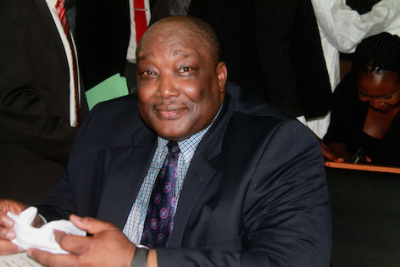The Coordinator of the Rule of Law Development Foundation, Joseph Daudu (SAN), has defended the decision of the Minister of the Federal Capital Territory (FCT), Nyesom Wike, to construct houses for judges in Abuja.
Daudu made this statement during the opening of the 6th Annual Criminal Law Review Conference in Abuja, countering criticisms, particularly from human rights lawyer Femi Falana (SAN), who had described the initiative as unconstitutional and embarrassing to the judiciary.
Daudu’s Defense of the Initiative
Addressing the allegations, Daudu dismissed claims that the housing project could amount to an inducement, describing such notions as unfounded and damaging to the judiciary’s reputation. He explained that the constitutional interplay among the executive, legislative, and judicial arms of government provides a legitimate basis for the project, which falls under the executive’s purview.

“In a normal democratic system of government, it is not unusual to see the executive exercise legislative or judicial functions in certain instances,” Daudu stated. He pointed to executive orders and legislative oversight as examples of such overlaps in a democratic framework.
Not a Personal Initiative of Wike
Daudu clarified that the housing project was not a personal initiative of the FCT Minister but part of a broader, constitutionally approved program. He emphasised that the initiative had been budgeted for and received presidential assent, ensuring its legitimacy.
“Critics portraying this initiative as a personal project of the minister are missing the point,” Daudu remarked. “It is a constitutionally approved program aimed at ensuring the judiciary is well-equipped to function independently.”
Historical Context and Challenges for Judges
The senior lawyer highlighted the historical precedent of housing judicial officers in Government Reservation Areas (GRAs), a practice common during the colonial era. However, this provision was discontinued in 2007 during the implementation of the government’s monetisation policy, which replaced direct housing benefits with allowances.
Daudu argued that the absence of secure accommodation for judges had created significant challenges, including safety risks and a perceived erosion of judicial independence. By reinstating housing provisions, the current initiative aims to address these challenges, ensuring judges have a safe and conducive environment to perform their duties.

“Critics reducing this initiative to party politics fail to see the broader benefits,” Daudu said, emphasising that the project serves to promote the safety, independence, and impartiality of judicial officers.
Executive’s Constitutional Mandate
Daudu also pointed out the constitutional mandate that tasks the executive with submitting budgets and executing programs for all arms of government, including the judiciary. He stressed that the three branches of government operate in a complementary, interdependent manner, not at cross purposes.
“The three arms of government work in tandem, not at cross purposes,” he noted. “Providing housing for judges is an executive duty aimed at strengthening judicial operations.”
Conclusion
Daudu’s remarks underscore the legitimacy of the housing project for judges, emphasising its alignment with constitutional principles and its broader impact on judicial independence and safety. While criticisms persist, his defence highlights the historical and practical context of the initiative, asserting that it is a necessary step to ensure the effective functioning of Nigeria’s judiciary.









